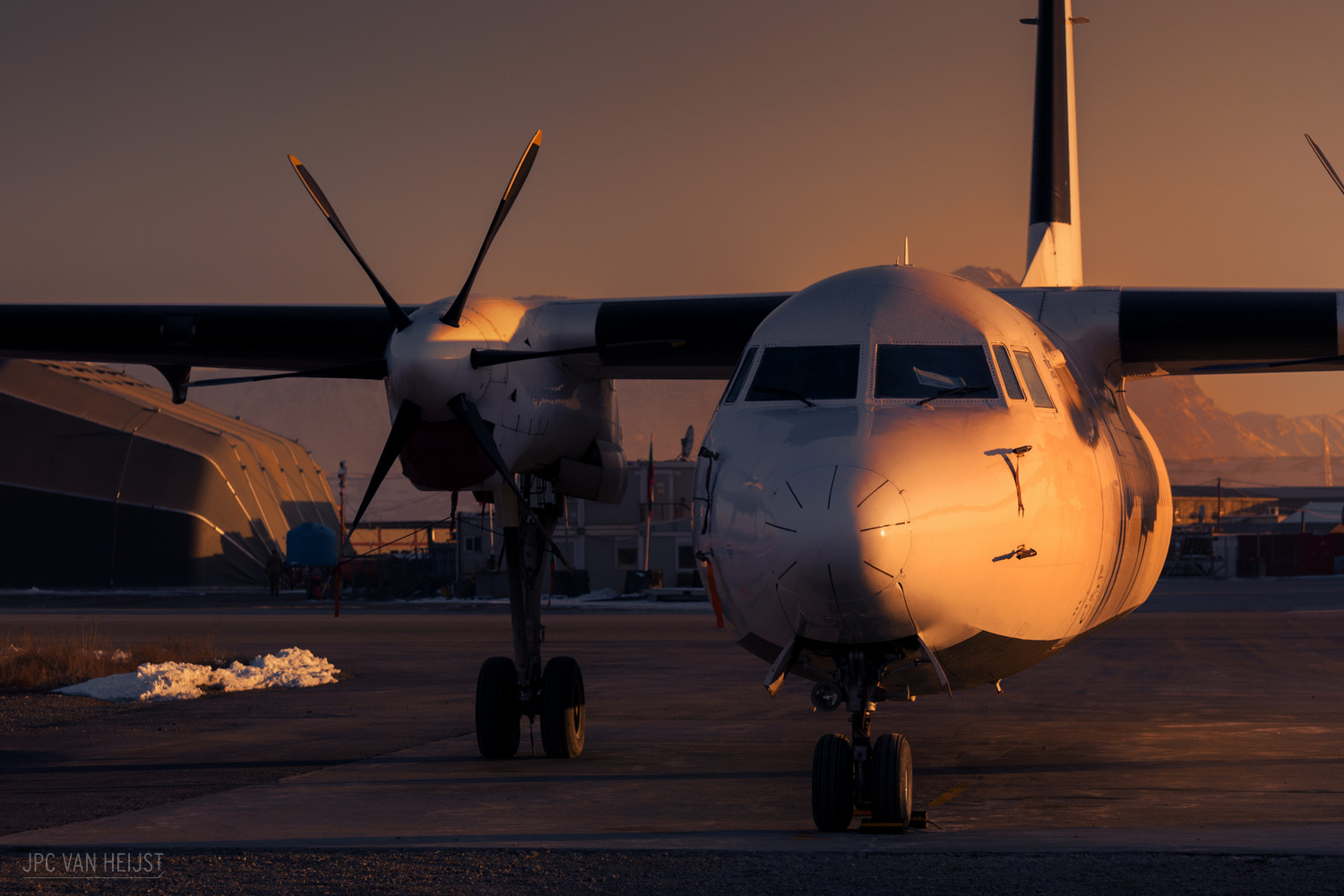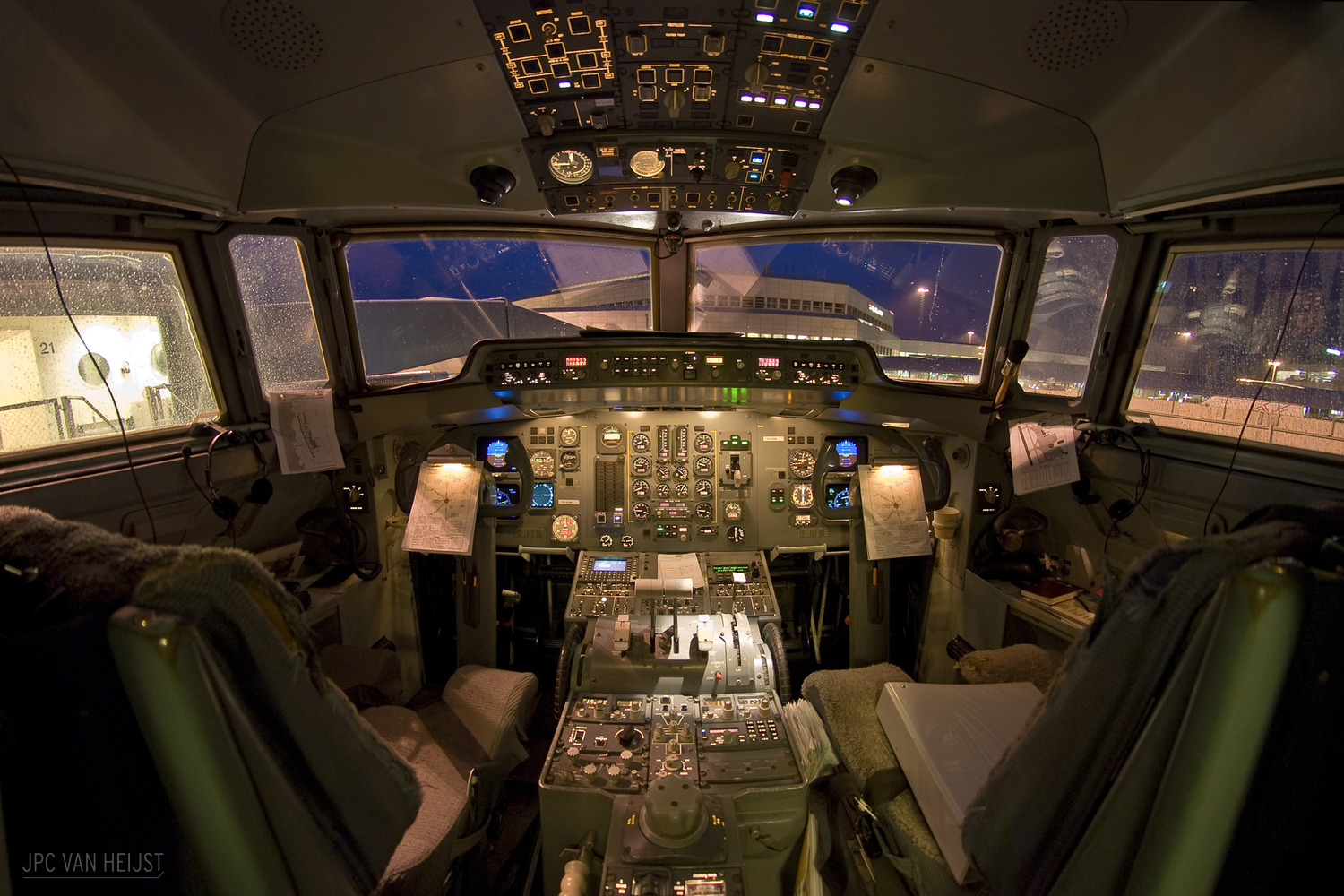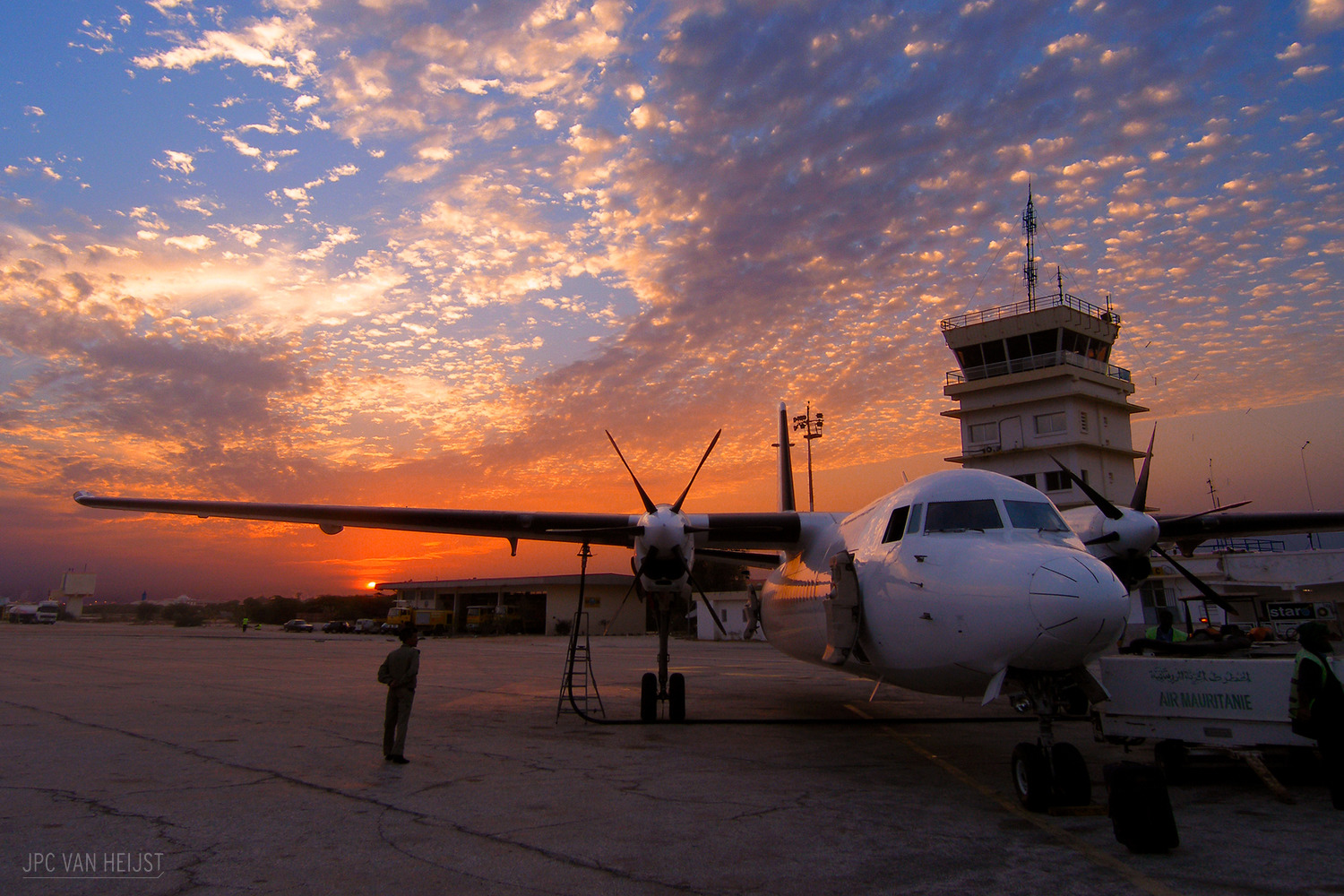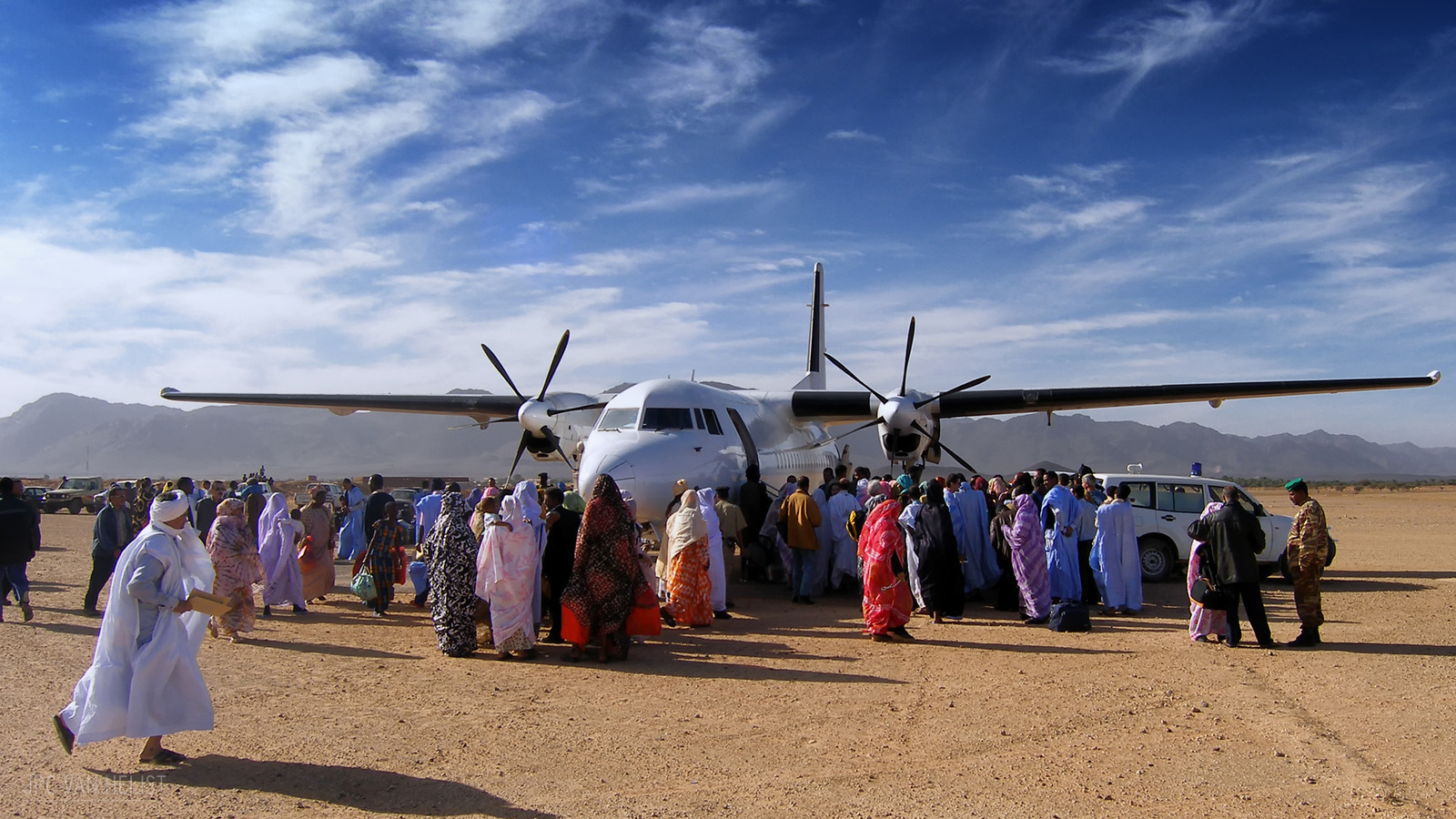Fokker 50 Turboprop (9 minute read)
2 November 2017Last week, KLM retired the last Fokkers from her fleet, marking an end to 97 years of Dutch-made airplanes flying for Dutch airlines. Even though many airlines and pilots around the world will keep on flying Fokker airplanes, its the end of an era and matter of time before they are gone from the skies for good. As some of you know, I started my career as an airline pilot back in 2004 on this small Dutch F50 airplane with a now, sadly gone, Dutch airline named Denimair. Sitting on the right seat of this versatile and sturdy turboprop, I was flying the Fokker in all sorts of operations and environments, varying between strict European contracts for KLM, but also non-standard operations in arctic Norway for Widerøe, island hopping for Olympic in Greece, Spanish domestic flights for Air Nostrum and later on flying as a so called 'contractor' for local civil and military operators in Africa and Afghanistan. Later, I have flown as a freelance ferry- and test-pilot on the Fokker 50, testing new equipment or flying her after some major maintenance was performed or flying the airplane to and from new customers.




Looking back, with nearly 8000 flying hours in over 20 different types of airplanes in my logbook, I can honestly say that the Fokker 50 was one of the most fun and pleasant airplanes I ever got to fly so far.
Im the first to admit that the airplane is, by far, not the best looking bird on any airport.
In fact, she's pretty slow, out-dated-looking and a real bathtub to fly with one engine failed.
And if that wasn't enough already, she tends to have serious issues when it comes to ice building up on her wings and engines in flight.
But even with all of those character traits in mind, I do consider this airplane my first true love in aviation and whenever I see her in lost corners in Kinshasa, Nairobi, Maastricht or Singapore, Im still exclaiming 'ahh... look at that plane! She's so nice and she was so nice to fly and handle!'.
Often inviting some funny looks from my colleagues that are questioning my Dutch humor or level of fatigue at the same time.
At the same time it hurts me a bit when I see some of those planes, of which some I have flown myself, in a sad state in Congo or Kenya, knowing that it probably doesn't take long before they are dismantled or crashed and forgotten.
I didn't love the Fokker 50 just because it was the first airliner I flew in a commercial operation, nor because it was the first airplane that I had to do my first type-rating for, and not even because I lived the most thrilling adventures in Africa and Afghanistan with it that would not misfit some action movies on some occasions and left me with a few close calls and life-long memories. Including a real birdstrike from behind.. and I think Im one of the very few pilots in the world who can actually say that.
No, one of the major reasons that I came to love that airplane is because it was a personal pinnacle of a long period of struggle and hard work that came before reaching this very point in my career. A crown on a long-lasting line of emotional and financial investment that took its toll on me and left its marks on my life and my personality.
Already having my made my mind up on being a pilot at the age of 14, I was told by many I was too stupid, too lazy or that it would be a waste of my intelligence and intellect to begin with.
Many expectations projected upon me; but nobody was interested in what I wanted or who I actually was for that matter. Typical, but a sadly universal theme.
All things considered, just those factors might be the very incentives that fueled my grit, vigilance and stubbornness that brought me where I am today in my professional and private life.
Though in retrospect, I must admit that it was indeed quite a gamble to boldly go into this new adventure with nobody to back me up or help me along the way, me being the first one in my entire family to venture in this strange industry. Then again, it simply felt right and that's a thing I learned to rely on in life in general; trusting my intuition in situations and people.
Not wandering the well-worn path of least resistance but following my own intuition and goals. Living by my own conventions and acting accordingly, no matter how difficult the consequences.
People come and go, but the only thing that you cannot get rid of is yourself so you'd better make sure you can live with that person for the rest of your life.
In that sense, I consider myself a truly lucky man to be able to look into the mirror every morning and night, looking myself in the eye and knowing I still stand by every single choice, decision and standpoint I ever took.
Without the help of my parents, I was visiting a few major banks at the age of 18 to arrange a study loan of roughly 150.000 Euros for my new career all by myself with nothing to offer in return to the bank except my naive enthusiasm and blind ambition. I still remember the extremely arrogant attitudes of the guys that are now probably still selling third-grade loans to people coming at their same desk, at most.
Not much later, I started this new chapter of flight training where I encountered quite a few major emotional setbacks, including a horrible accident that killed 2 fellow students and instructor.
An event that shook the basis of my innocent ideas of mortality, flying and life itself to the core, just when I was starting with this career.
All in all, I was more than happy to finish flight school at the age of 19 and start flying sightseeing flights over The Netherlands from Lelystad and Teuge, eventually being hired with a small flight school at Teuge airport for the desk work, sightseeing flights and washing small airplanes.
With the interest rates of the bank weighing heavy on my shoulders and hardly a coin to scratch my back, I was glad to be able to sleep for free in my sleeping bag in the back of an old abandoned classroom that, long time ago, was teaching eager new minds the theory of flying.
Now, it only saw dozens of empty desks and a broke young pilot that was washing airplanes and hoping for an occasional 20-minute sightseeing flight once a week, if the weather was good enough.
Behind my little desk of this flight-school I was to take care of the schedules, coffee and agenda and as a result I was face to face with the most colorful characters that came before my desk.
Included were some very inspiring and fantastic characters that encouraged me not to give up on my dreams and helped me to the point where I am today, but also a few who took so much pride in the fact that they had a private pilots license they thought they could step on 'lower life' below them, in the most demeaning and pathetic sense.
If it had to teach me one thing, it was that money can buy you a lot of things except manners and character.
As a side-note I must mention that the days I had at Teuge were a lot of fun as well, regardless of all the hardship and stress that came with it. For some reason, airports seem to attract all sorts of colorful characters, being pilots, cooks, mechanics or bankers, resulting in evenings that might or might not be forgotten in the fog of time, drinks and laughter.
Then, after nearly a year of living like a homeless degenerate in the catacombs of a small regional airport, I received a phone call that would change my life.
The most beautiful voice was asking If I was still interested in an interview with a company called Denimair.
The story on how I actually got that call might be expanded on another time, requiring a barrel-roll or two. Needless to say, I was beyond happy and eager to start this new chapter.
Expected at 10, I was there at 9, awaiting my first ever interview in suit and painfully new shoes. After an hour of difficult questions, and another long day of thorough psychological test, I stepped into the Fokker 50 flight simulator for a 'grading' that would finish this tough selection process where the weak would hopefully be filtered out and the few lucky ones would be allowed to enter the training course.
With the instructor behind me and a fellow applicant next to me, we were to fly the Fokker 50 manually through all sorts of instructions and maneuvers to show the instructor that we were capable of basic airmanship, instrument-navigation and manually flying a complex airplane that was completely unfamiliar to us.
Walking out, I couldn't but notice one of the most fantastic sunsets that unfolded in the windows of the cantina, reflected in the clouds and skies beyond. A typical scene that in the following years I would recognize as happening every single time a major event would dictate my life. Wishful thinking? Maybe, but I recognize it as a sign just after a major turning point in life and its proven itself as reliable ever since.
Regardless of my own fearful ideas about the session, I was hired and soon began the type-rating of the Fokker 50.
Complicated schematics of the electrical systems, fuel lines and hydraulics passed before my eyes, accompanied by know-by-heart numbers, figures and all sorts of procedures that were completely new to me and had to be known by heart within 3 weeks before the simulator training began.
Just 2 months after I opened the first books, I was starting line-training in my brand new uniform with a base in Barcelona, Spain. So exotic!
The first flight was completely overwhelming, starting already with a double birdstrike on my cockpit window during takeoff and heavy weather all over Spain on our way to Santander. No matter what training, nobody prepared me for the overwhelming rush of flying an airliner for the first time in such an environment.
The moment we started the engines, I was running behind the airplane and was hardly able to catch up in the weeks to follow. Completely indecipherable semi-Spanish chatter on the radio, unfamiliar airports and flying in heavy weather with a complex machine that sometimes seemed to have a life of its own when it noticed that young pilot slacked his imaginary tension on the leash.
None the less, I managed to survive my first weeks of line-training in Spain and eventually even passed all the necessary checks so I was allowed to fly as an officially checked out 'First Officer' on the Fokker 50.
In the months that followed, I started to feel more and more comfortable in flying this new machine and eventually felt so at home that I was able to deal with whatever was thrown on my path. And a lot was coming up in the years that followed in Africa and Afghanistan...
For nearly 2,5 years I was flying the Fokker 50 and about to be promoted to the left seat as a captain when I suddenly got the chance to join Transavia on the Boeing 737.
In retrospect a valid choice career-wise, but I deeply regretted the choice and missed the Fokker 50, the Denimair colleagues and the flying adventures for a very long time to come.
Then again, the hours on the 737 were fundamental for building up my experience that followed 4,5 years later; flying the Boeing 747 in all the demanding corners of the world.
And now, with Fokker gone forever from the Dutch world of aviation, its the end of an era for many pilots and engineers alike.
I'm proud to have been part of that legacy and having had some first hand experiences flying this Dutch part of history that became a personal symbol of achievement for me in the early days of my career.
Out of sight but not out of heart.